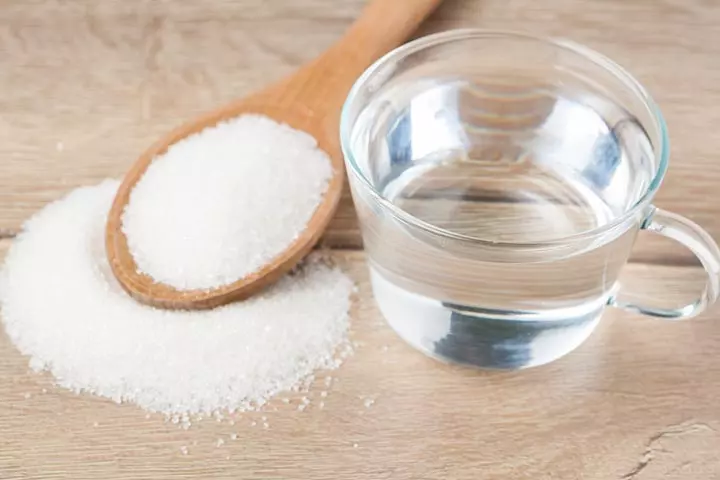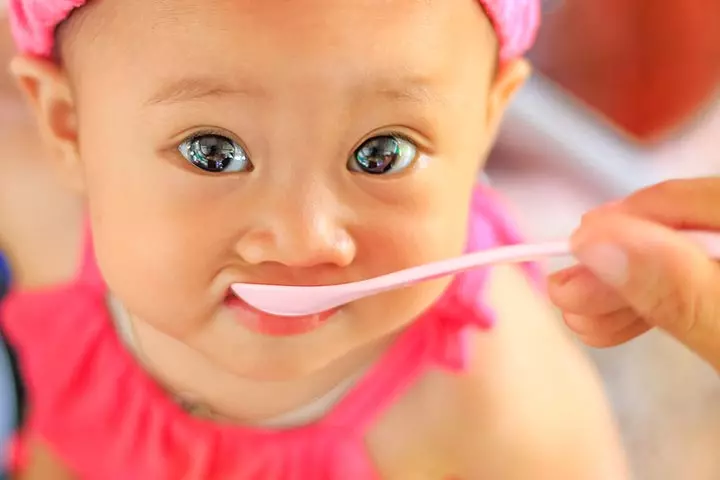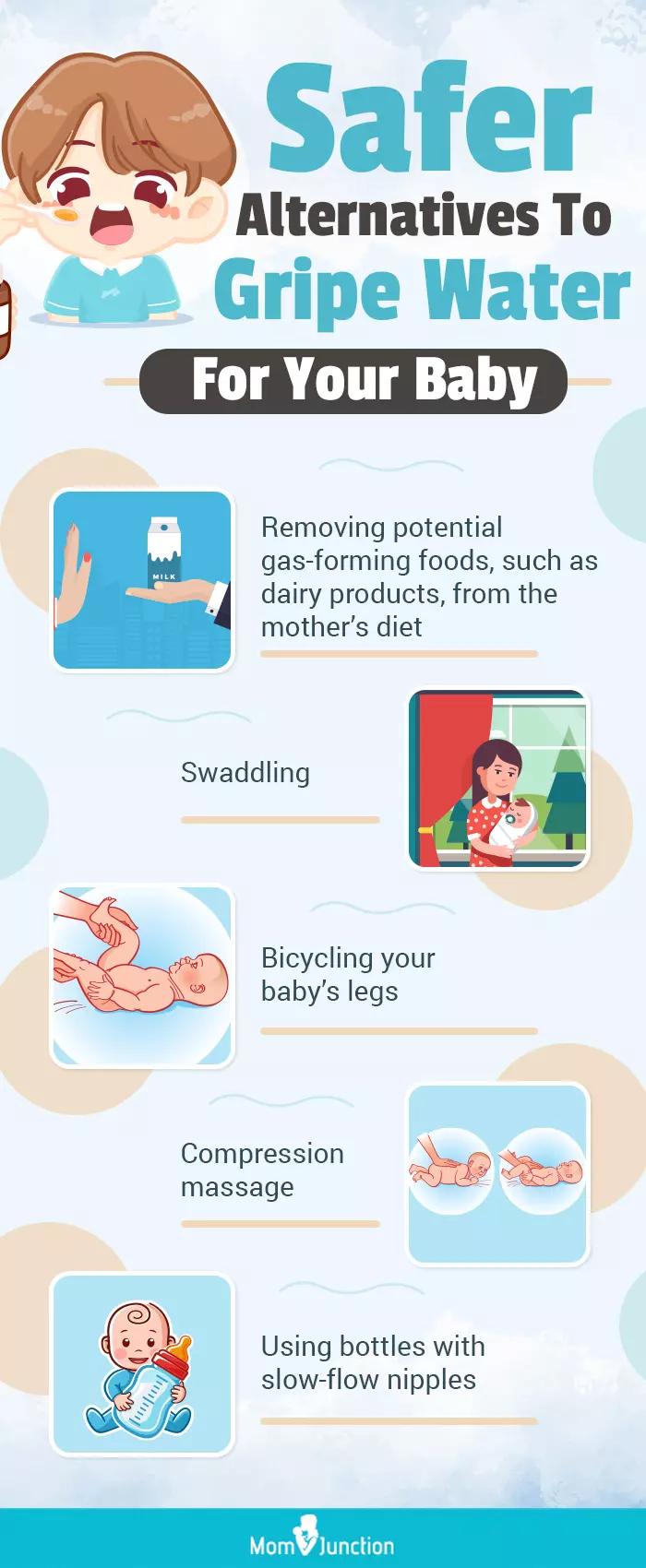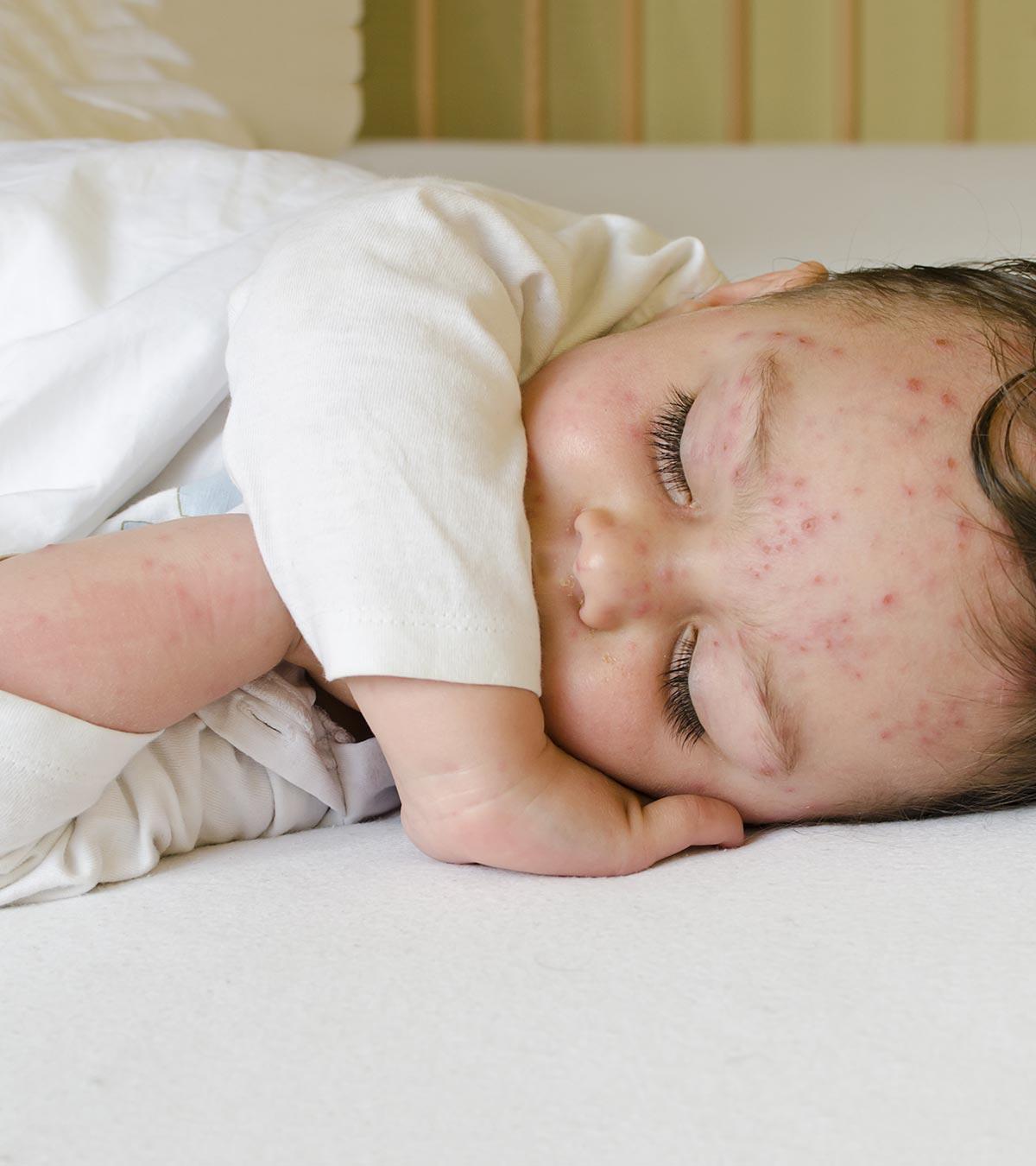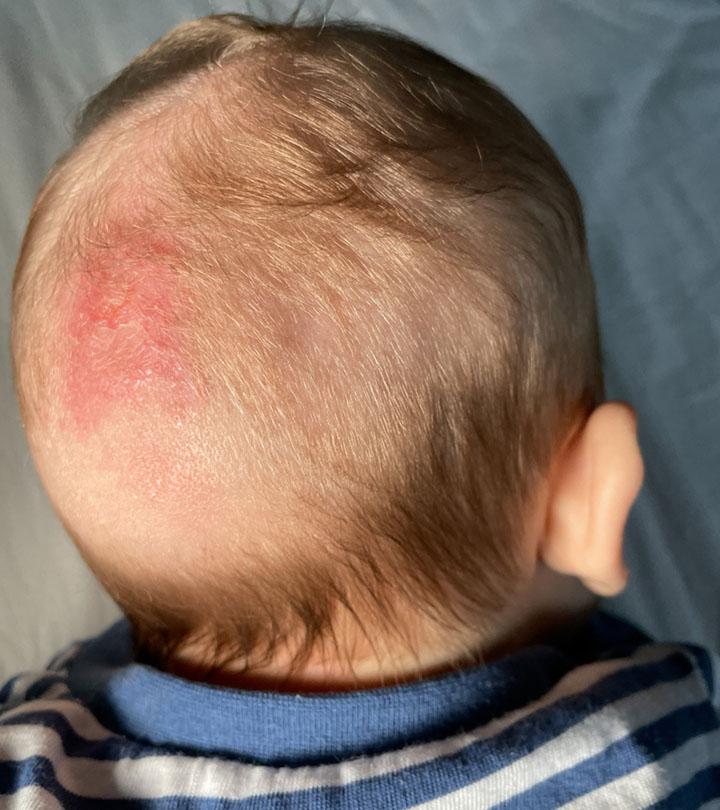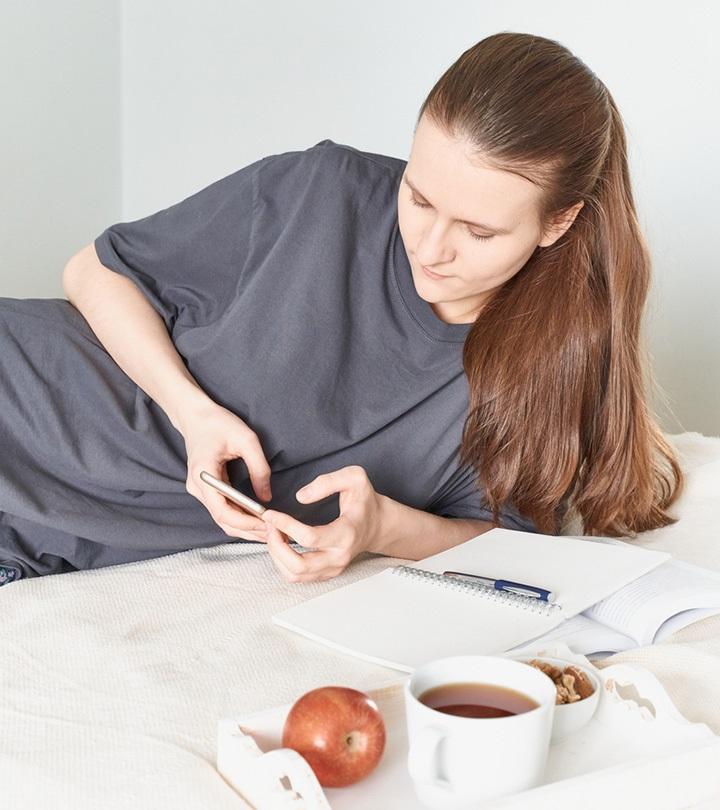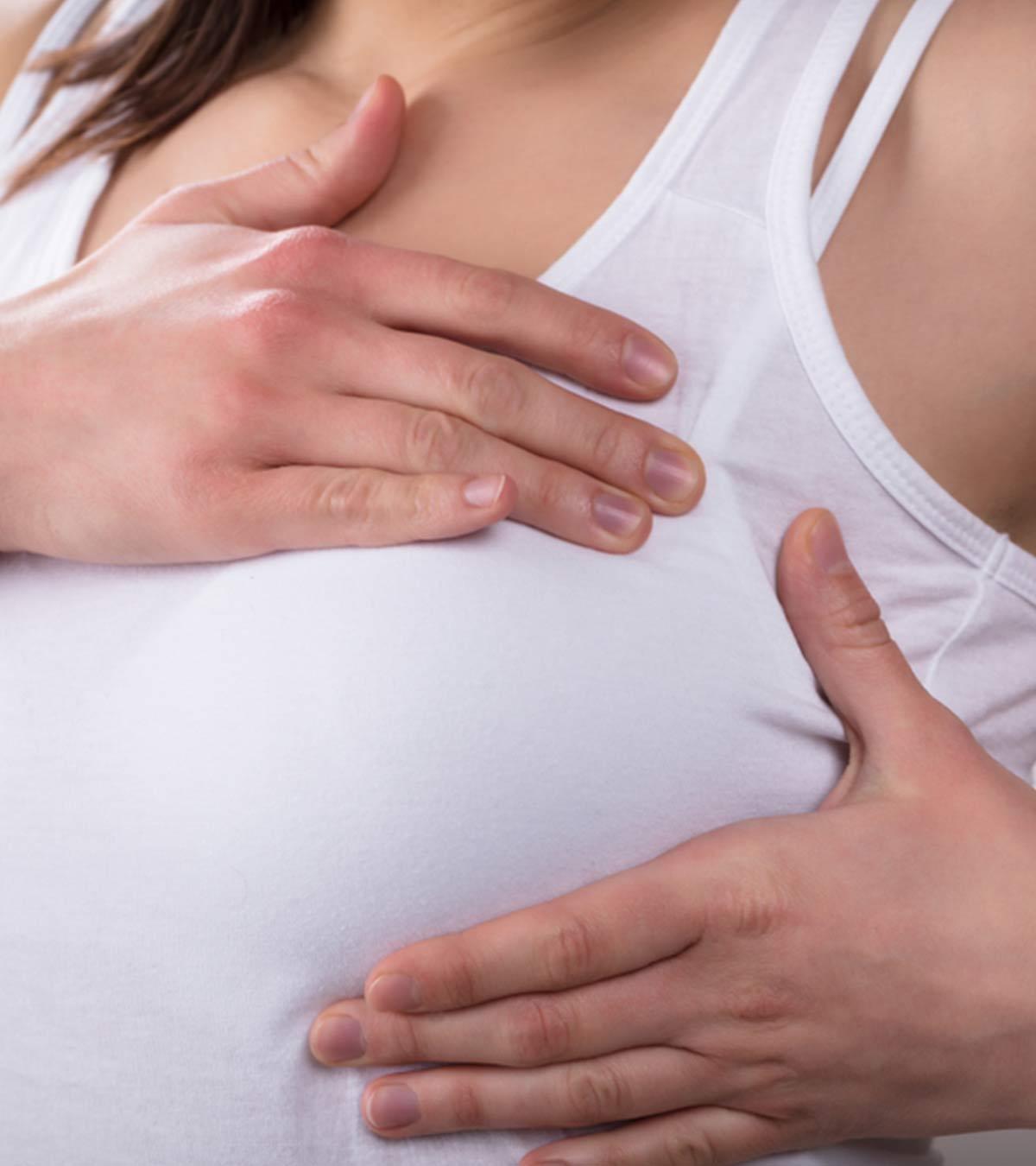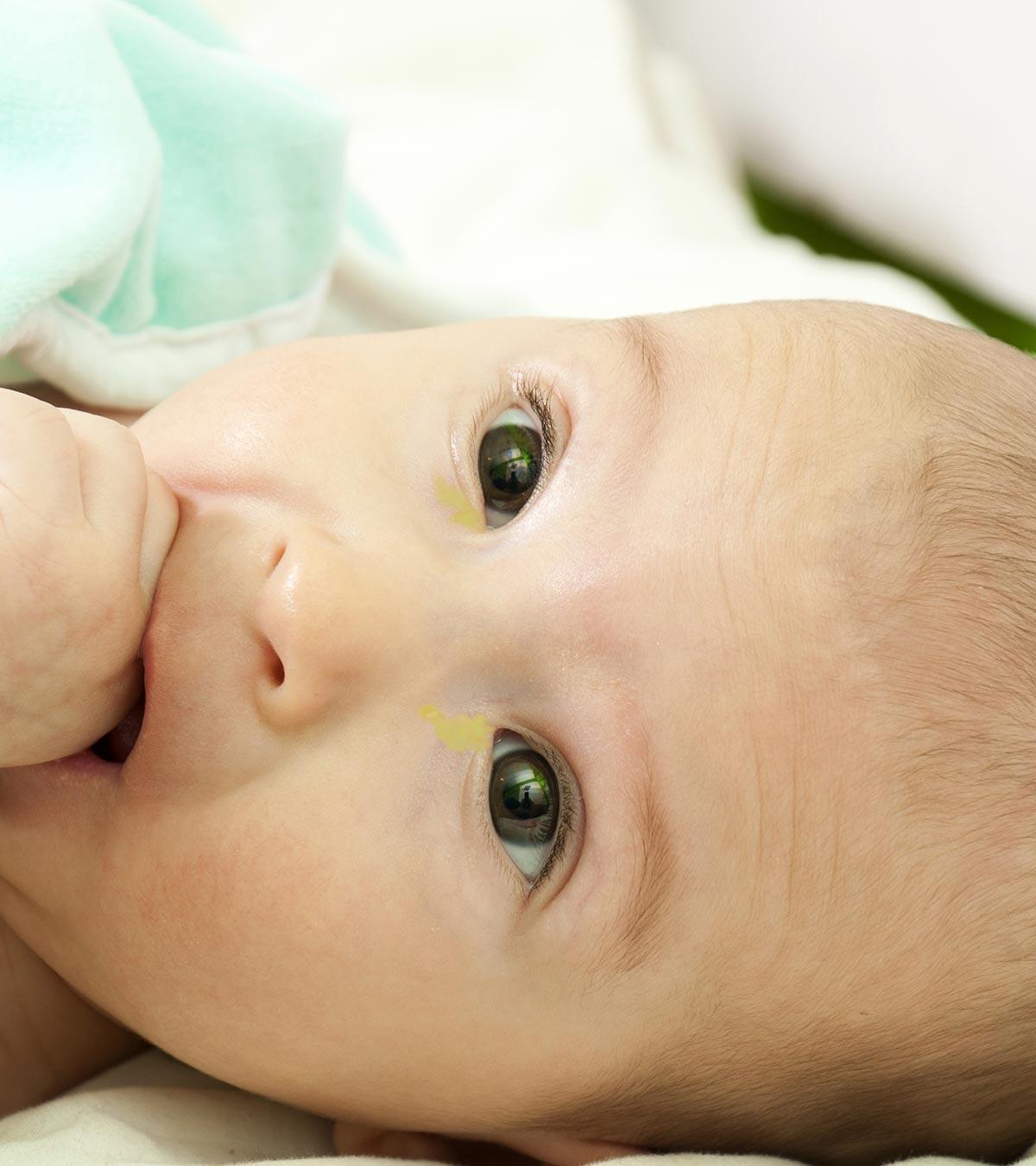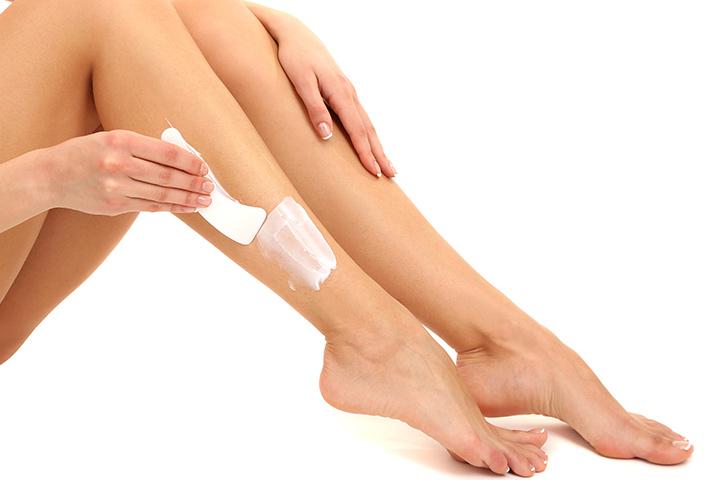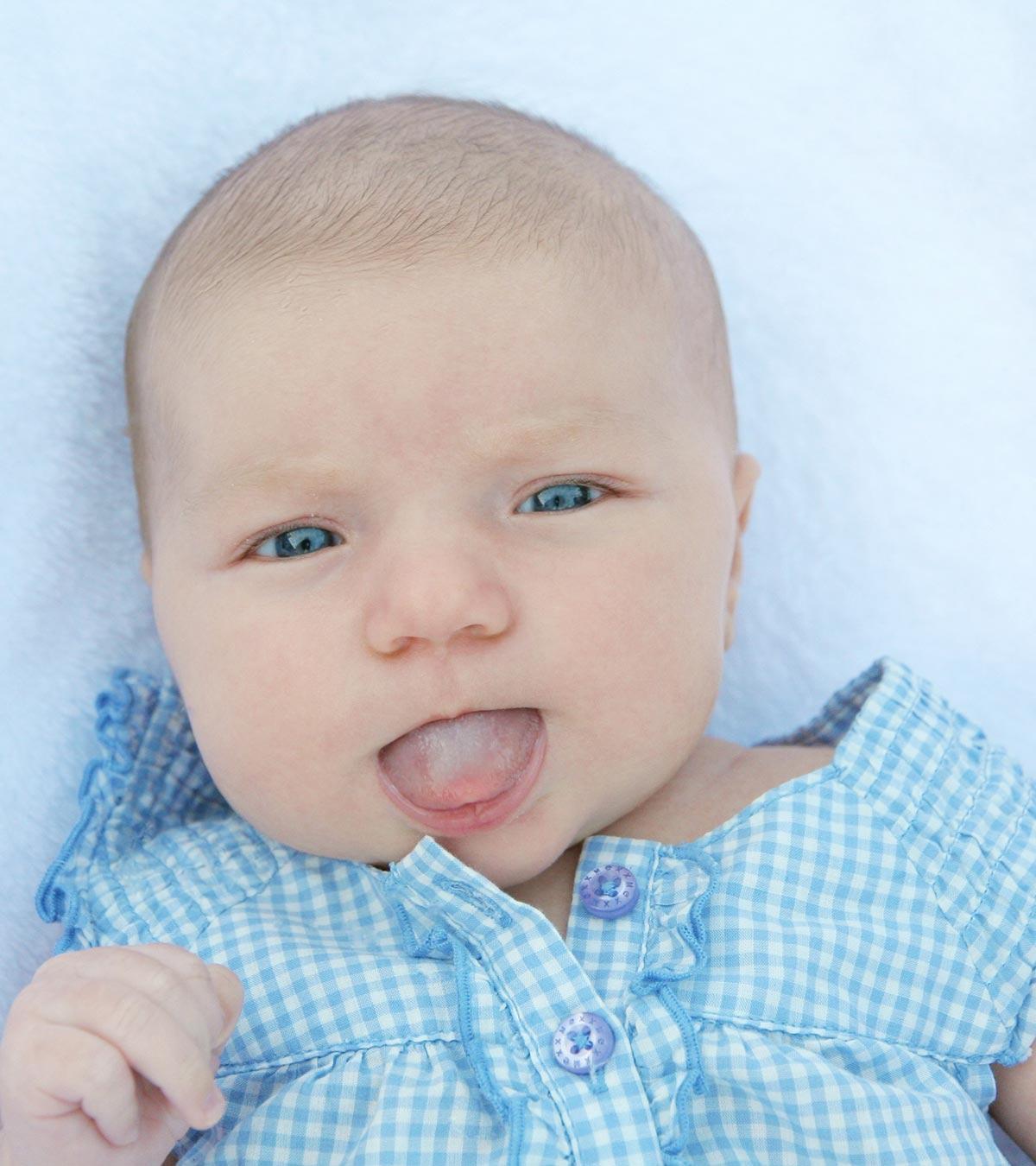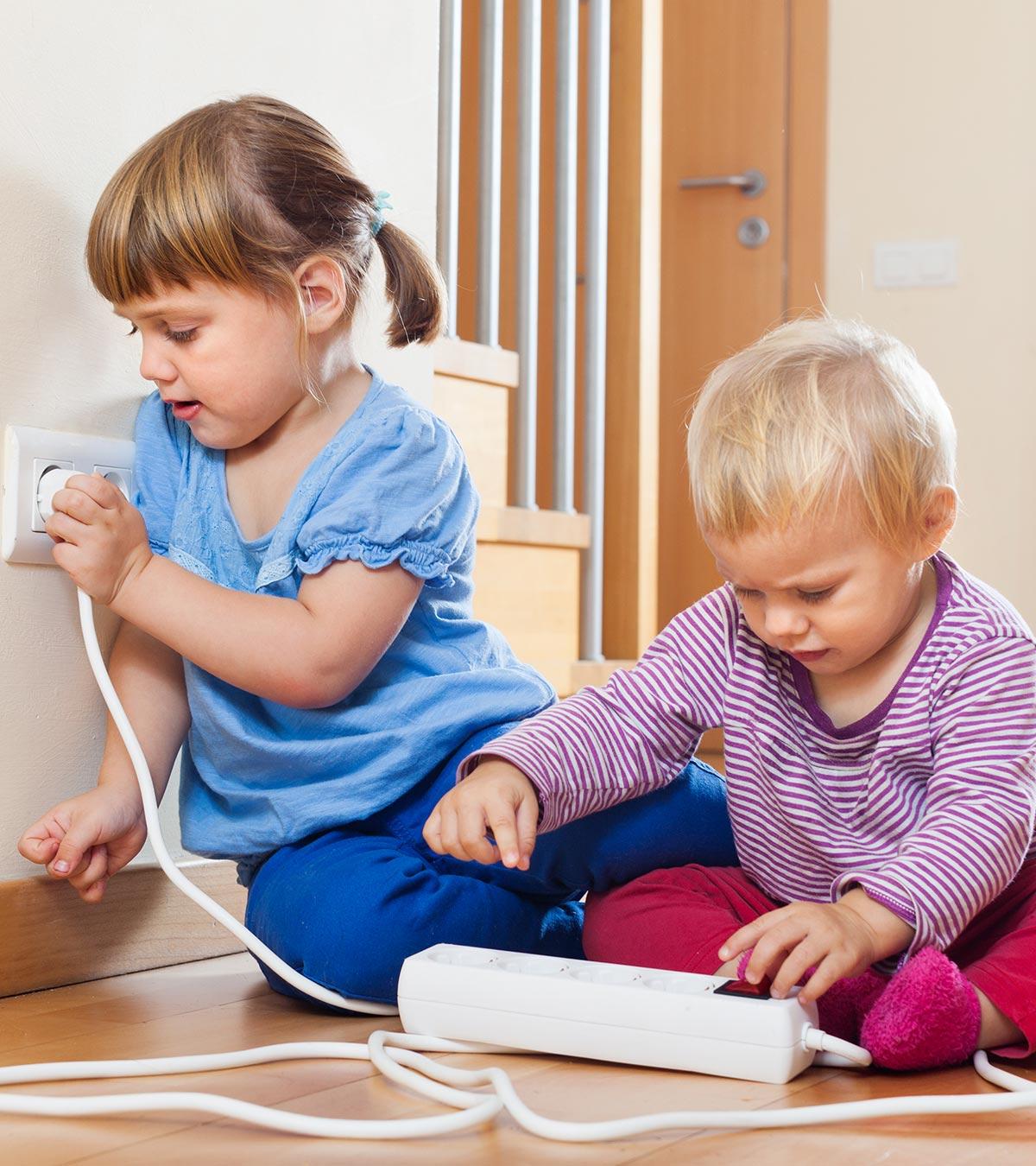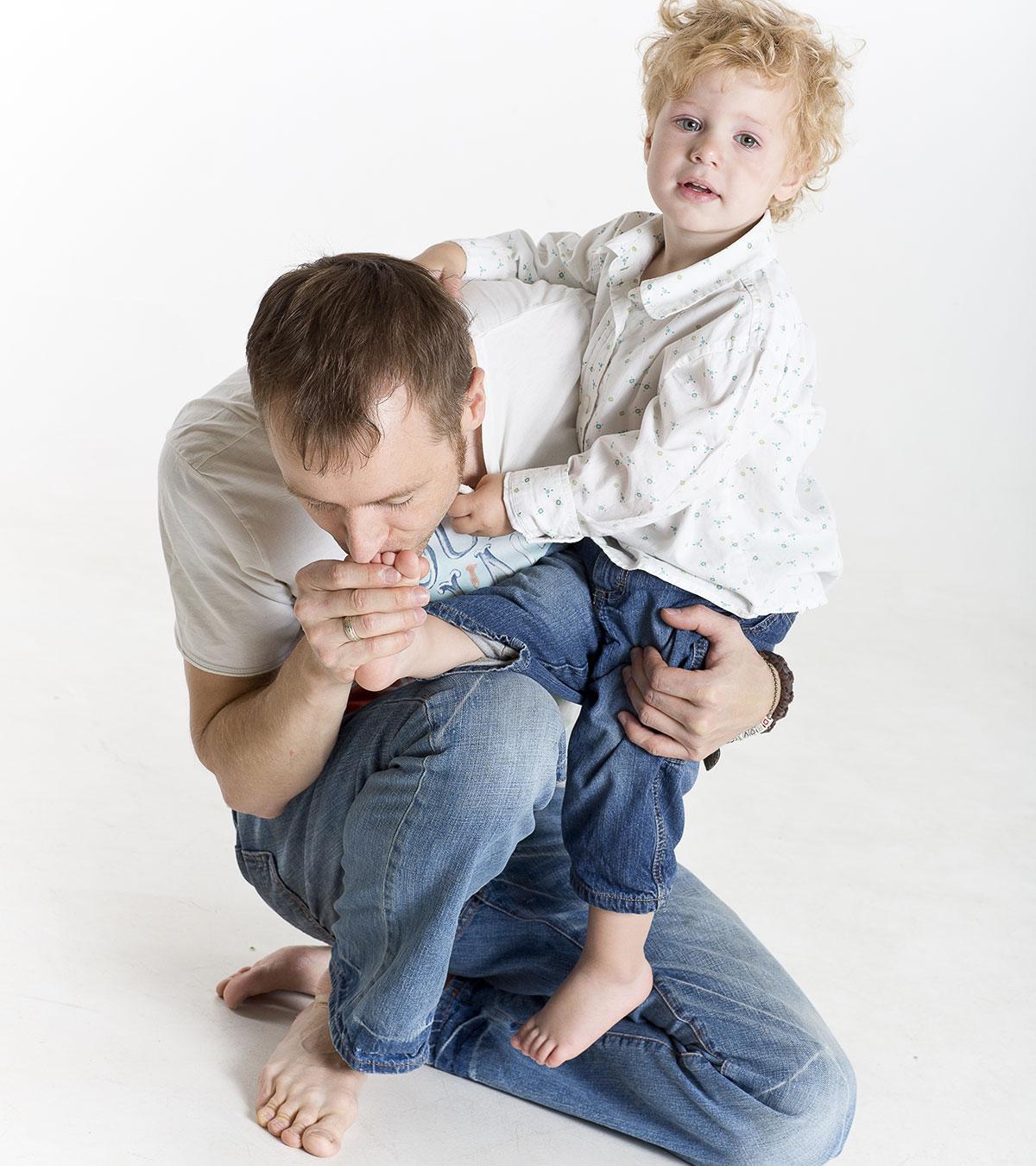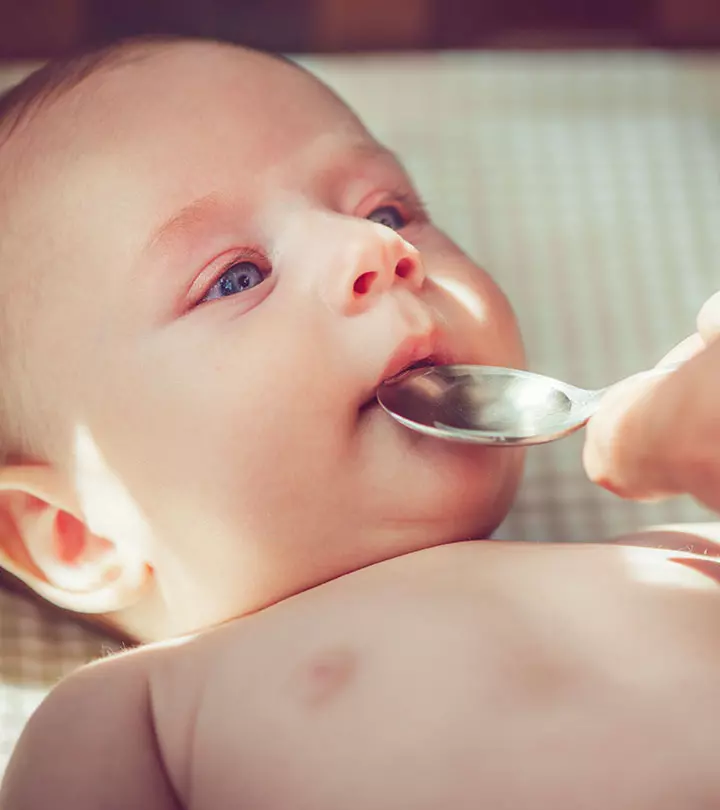
Image: iStock
Colic is common among babies during the first few months of life (1). One of the common remedies that parents have used for colic is gripe water. Gripe water for babies has shown to calm and relax them during bouts of colic. However, the remedy has not been free from its share of purported side effects. Is gripe water safe for babies, and should you consider it for your little one’s colic?
Read this post to know the safety, benefits, and potential side effects of gripe water for babies.
What Is Gripe Water?
Gripe water is an over-the-counter herbal dietary supplement that has been available for over a century (2). It was created in the 1800s to treat malaria fever. Later, its uses diversified to soothe and alleviate common problems in babies such as colic, an upset stomach, teething pain, hiccups, and other tummy troubles. The initial formulation contained alcohol. Currently, alcohol-based gripe water is discontinued due to the adverse effects of alcohol on babies (3).
These days, most gripe water brands use sodium bicarbonate, sugar, and a few herbs such as dill seed oil, peppermint, fennel, chamomile, or ginger (4). They may also contain other artificial flavors (5).
It may be noted that gripe water is not regulated by the US Food and Drug Administration (FDA) since it is marketed as an herbal supplement and not a medicine (6). Hence, caution is advised before introducing your baby to gripe water.
Is The Consumption Of Gripe Water Safe For Babies?
There is not enough evidence regarding the safety of gripe water on babies. You may have to check the specific ingredients in a bottle of gripe water to determine if it is safe for your baby.
- Sugar: The sweet taste brought by sugar could calm a crying baby (7). While some sugar may not harm the baby’s dental health, excess sugar exposure may interfere with teething and cause premature tooth decay (8).
 Point to consider
Point to considerImage: Shutterstock
- Sodium bicarbonate: Excess consumption of sodium bicarbonate may increase the blood’s pH level and cause a condition called alkalosis (5). It may also cause milk-alkali syndrome in babies (9). This condition is characterized by metabolic alkalosis, hypercalcemia (blood calcium levels above normal), and renal failure (10). Also, sodium bicarbonate should not be administered to children below 12 years of age unless prescribed by a doctor (11).
- Herbs: The herbs in gripe water may aid in digestion and help relieve colic in babies. Fennel seed oil, a common herb in gripe water, has shown to reduce colic in infants. However, more research is needed to assess its efficacy (12). Some gripe water brands include chamomile, which may be contaminated with the spores of Clostridium botulinum bacteria (13).
- Other ingredients: Some gripe water brands may include common allergens such as dairy, gluten, soy, parabens, and vegetable carbons. Although not all babies may show hypersensitivity to these ingredients, a few may.
Infants must only have breast milk or formula milk until the age of six months. You must always consult your doctor before giving any supplement, remedy, or medication to a baby younger than six months.
How Does Gripe Water Work?
Gripe water’s effectiveness depends on the types of ingredients used in it. It is not fully known how gripe water works but most of its effects are attributed to the natural herbs in it, such as fennel, dill, and peppermint (4). These herbs may have the following effects.
- Reduces fussiness such as caused by teething
Image: IStock
- Relaxes the baby to sleep
- Subdues the colic symptoms
- Releases gas
- Encourages bowel movements
How Much Gripe Water Can You Give A Baby?
The upper limit of gripe water varies from brand to brand. Generally, a baby older than six months may have a dose of 10ml of gripe water liquid after a feed or a meal. You must not give more than six doses in 24 hours. It is best to consult a doctor to know the exact dose Never administer it to babies younger than six months without consulting a doctor, even if the manufacturer provides a recommended dose (14).
When To Give Gripe Water To Your Baby?
You may administer gripe water when the baby shows symptoms of gastrointestinal discomfort or colic
. You may look for the following symptoms to determine if the baby needs gripe water (15).
- Frequent burping
- Clenched fists and curled legs, especially during crying
Image: IStock
- Constant excessive crying in a loud and high-pitched voice
- Flushed face
- Tight stomach
How To Give Gripe Water?
If a pediatrician has permitted the use of gripe water, you may start giving it to your baby. Here’s how to give a baby gripe water.
- Only opt for gripe water brands free from alcohol and sugar. Read the manufacturer’s label to know the quantity and frequency. It is safer to run this information with your doctor.
- Use a teaspoon or a dropper to give the tonic. Take the required quantity and gently release the tonic in the baby’s mouth, preferably along the cheeks, to prevent the baby from splattering it out.
Image: IStock
- Do not mix the gripe water with breast milk, formula, juice, or other food items.
- You may give gripe water after feeding to reduce symptoms of gas pain.
- Never give expired gripe water.
Are There Any Side Effects Of Gripe Water?
An infant may have an allergic reaction to any of the ingredients. Hence watch out for signs of allergies such as:
If you notice any of these symptoms, stop administering gripe water and contact a pediatrician.
 Caution
CautionAre There Alternatives To Gripe Water?
You may consider the following gripe water alternatives, which may be safer and unlikely to have any side effects.
- Analyze the diets: Some foods such as kale, spinach, onions, beans, peppers, or dairy products in the mother’s diet may cause gas accumulation in breastfed infants (16). Older babies on a solid diet may also experience gassiness on consuming these food items. You may try eliminating a food item, one at a time, from your or your baby’s diet to see if it improves gastrointestinal discomfort or colic. Alternatively, gas in formula-fed babies could be due to the ingredients in the powder. If your baby is being formula-fed, watch out for the potential allergens in the product, such as cow’s milk or soy (17). If you suspect allergens to be the cause, consult your doctor and change the formula.
- Swaddle your baby: Wrap your baby in a blanket and gently rock them. You may also try dimming the lights or playing some soft music. The warmth of the blanket and the gentle movements should calm them soon.
- Bicycle their legs: Place your baby on their back and gently pedal their legs. This could help relieve the tightness and accumulation of gas in the gastrointestinal tract.
Image: Shutterstock
- Change the bottle: Your baby could be gulping air while drinking milk from a feeding bottle. Switch to a bottle with a nipple specially designed to prevent an infant from gulping too much air while feeding. You may try purchasing a bottle with slow-flow nipples.
- Try compression massage: While your child is lying on their back, gently massage their belly in circular motions. Similarly, massaging their back could offer them comfort. You may also give a tiny break during the feed and tap their back gently until they burp. You may read more about baby massages here.
Frequently Asked Questions
1. Will gripe water help my baby poop?
Many gripe water brands claim to reduce stomach discomforts such as gas, tightness, and constipation. There are insufficient studies to conclude that gripe water could be effective at helping a baby poop.
2. Does gripe water make babies sleepy?
Gripe water does not contain any ingredient that acts as a sedative to a baby. Gripe water may relieve some conditions that cause fussiness in babies, causing them to relax and fall asleep.
3. Does gripe water work immediately?
The efficacy of gripe water may vary in each baby. While it may relieve some babies of colic immediately, it may take longer in others. Since each baby may react to the formula differently, check the product’s efficacy and use it accordingly.
4. Is it better to give gripe water before or after feeding?
Babies may experience colic after feeding. Hence, you may consider giving babies gripe water after a feed. However, seek your doctor’s advice before administering gripe water to babies.
Gripe water for babies has been a popular remedy for colic and other gastrointestinal discomforts, such as upset stomach. Despite its popularity, its safety and effectiveness are not fully known. You may consider giving gripe water to your baby as a last resort if other alternatives do not work. Remember to consult a doctor before giving gripe water, especially if your baby is less than six months old.
Infographic: Healthier Alternatives To Gripe Water For Babies
Gripe water may soothe symptoms of colic and other tummy problems in infants. However, it may not suit all babies as some may experience side effects. The infographic below lists some alternative ways to relieve your baby’s discomfort.
Illustration: Momjunction Design Team
Key Pointers
- Gripe water is a herbal supplement commonly used to soothe teething pain, gastric troubles, and colic in babies.
- However, it is not regulated by the FDA for use in babies.
- Though there is limited evidence to prove the safety of gripe water, babies tend to like it for its sweet taste.
- If you plan to introduce gripe water to your baby, it is best to consult a pediatrician to understand the possible effects of gripe water.
Image: Dall·E/MomJunction Design Team
Learn about the amazing Gripe Water for Babies in the video given below! Understand the natural remedy’s prowess in pacifying infant digestive discomforts.
References
- Gastrointestinal Problems.
https://www.stanfordchildrens.org/en/topic/default?id=gastrointestinal-problems-90-P02216 - Here’s What to Do When Your Baby Has the Hiccups.
https://health.clevelandclinic.org/heres-what-to-do-when-your-baby-has-the-hiccups/ - Babies Can Get Sick from Alcohol.
https://injury.research.chop.edu/blog/posts/babies-can-get-sick-alcohol - Indian Myths Explored.
https://www.sutterhealth.org/health/south-asian/childrens/myths - B. Adhisivam; (2012); Is gripe water baby-friendly?
https://www.ncbi.nlm.nih.gov/pmc/articles/PMC3356971/ - Colic: Harmful Treatments.
https://www.uofmhealth.org/health-library/hw31230 - R.G. Barr et al.; (1999); Differential calming responses to sucrose taste in crying infants with and without colic.
https://pubmed.ncbi.nlm.nih.gov/10224212/ - Baby Bottle Tooth Decay.
https://www.mouthhealthy.org/all-topics-a-z/tooth-decay-with-baby-bottles - Matjaz Kopac; (2019); Evaluation and Treatment of Alkalosis in Children.
https://www.ncbi.nlm.nih.gov/pmc/articles/PMC6517058/ - Boris I. Medarov; Milk-Alkali Syndrome.
https://www.ncbi.nlm.nih.gov/pmc/articles/PMC2664604/ - Sodium Bicarbonate.
https://medlineplus.gov/druginfo/meds/a682001.html - Irina Alexandrovich et al.; (2003); The effect of fennel (Foeniculum Vulgare) seed oil emulsion in infantile colic: a randomized, placebo-controlled study.
https://pubmed.ncbi.nlm.nih.gov/12868253/ - Maria I. Bianco et al.; (2008); Presence of Clostridium botulinum spores in Matricaria chamomilla (chamomile) and its relationship with infant botulism.
https://pubmed.ncbi.nlm.nih.gov/18068252/ - Patient Information Woodward’s Gripe Water – Alcohol Free & Sugar Free.
https://www.medicines.org.uk/emc/files/pil.3611.pdf - Colic.
https://www.hopkinsmedicine.org/health/conditions-and-diseases/colic - What’s causing gas in my breastfed baby?.
https://women.texaschildrens.org/blog/whats-causing-gas-my-breastfed-baby - Cow’s Milk Sensitivity in Babies.
https://www.uofmhealth.org/health-library/aa106616 - Sugar Intake in Infants, Children and Adolescents.
https://www.espghan.org/dam/jcr:9fdb9c21-494a-4237-9be7-303f68d8b0a2/2018_Sugar_Intake_in_Infants__Children_and_Adolescents.pdf - Woodwards Gripe Water – Alcohol Free & Sugar Free.
https://www.medicines.org.uk/emc/product/3611/smpc#gref
Read full bio of Dr. Zeel Gandhi
Read full bio of Swati Patwal
Read full bio of Ghazia Shah





